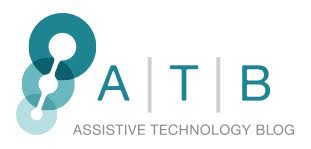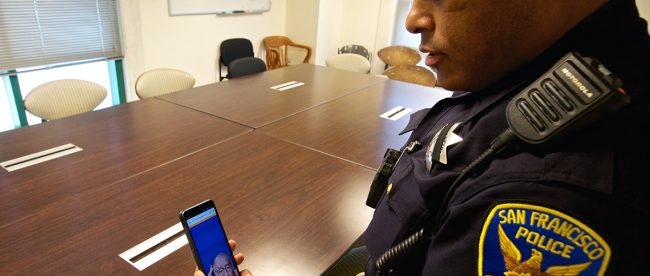New App To Reduce Barriers Between Deaf Community And Police
San Francisco Police Department (SFPD) is planning to roll out a new app to its police officers that will help them communicate more effectively with deaf victims, witnesses or perpetuators of crime. The Police Commission will soon vote on a new policy that intends to improve communication between police and deaf community members.
Through this new policy, the SFPD is planning to give police officers access to a video chatting app on their phones that will connect them to a sign language interpreter, bring them on to a crime scene directly. Through the app and remote SLI, it is expected that the deaf person involved in the scene will be able to provide quick and accurate information to the officer. Some may argue that writing can be an alternative to bringing a SLI in real time. However, since writing is not a deaf person’s first language, it is critical for them to sign in order to express the intensity, and seriousness of the situation they are in or threat they are facing.
Language Line Solutions
This new technology is being proposed after deaf people filed several complaints expressing dissatisfaction at the way police officers handled communication. The “Language Line Solutions” app has already been piloted with a few officers at Ingleside Station and Mission Station and if the commission passes the policy, this app will be rolled out to all officers within 120 days.
There are other police departments too working on reducing barriers and making communication between police and deaf community easier. A little more than an year ago, for instance, the State of Minnesota launched a texting service to 911 for deaf people.
We already know remote sign language interpreters are being used in classrooms. Where else do you think bringing in a sign language interpreter will be helpful? If you are outside of the United States, do you think this type of technology can be easily implemented? if not, what are some of the barriers you see? Let us know in the comments below!
Source:San Francisco Examiner


Great to added new text for 911 to communicate anyone with law enforcement or other issuses
A potential barrier is if the sign language interpreter is not from our region but another part of the United States, because sign language is not Universal and we have different dialects. For example I live in Vancouver Washington and I went to school in a deaf university in Washington DC where people from many different states attended. Because I am hard of hearing an English is my first language I am not fluent in ASL however I taken a lot of ASL classes and had been involved in my deaf Community here at home before flying to DC, and yet fully deaf people, whether they had a song as a first language or acquired it later in life, assume all hard of hearing people who are not yet fluent must be signing wrong if they don’t know the sign they see. That meant that myself, my roommates from Florida, and many other people who are hard of hearing from different states we’re constantly being corrected by people that happen to have a dominant sign used and recognized in the Washington DC area. While they will complain that they didn’t understand something I was saying, when I went back home people understand me just fine. One day on campus in DC there was a woman that was from my state visiting, probably an alumna, and when I talked with her she signed are you deaf and I signed I am hard-of-hearing. She signed that she thought I was fully deaf because I appeared fluent to her. I also had problems with the interpreters. I had a woman that was from Texas that I struggle to understand issue sign language. I also knew a Black Deaf student but nobody seemed to understand, and I believe she was using a form of black ASL but from a different region than we were from. Just imagine if you took somebody that spoke like that guy on King of the Hill, and you mixed in with somebody from New York and then expect these two people to communicate. That is the problem! This is why the deaf Community does not like VRI in hospitals and are not going to appreciate this app as much as they would appreciate having the officers hired already fluent in their language, kind of like if you have a Latino police officer able to speak fluently speak Spanish, or have an interpreter brought in it is situation where it is possible to do so. I believe since Texas has hired one female deaf police officer they just need to keep going on with that line of thinking and hiring more officers who are one of us. The app may have uses, just like a notepad and an iPad have uses, but there is never going to be a substitute 4 an officer knowing how to directly communicate with a citizen in their own first language, be American Sign Language, Mexican Spanish, Ukrainian, you really need to just higher more diverse police. And I believe that would also make deaf people not so scared of the police killing them for not hearing, if they see the police officer can empathize as well as sign because they are deaf to. Right